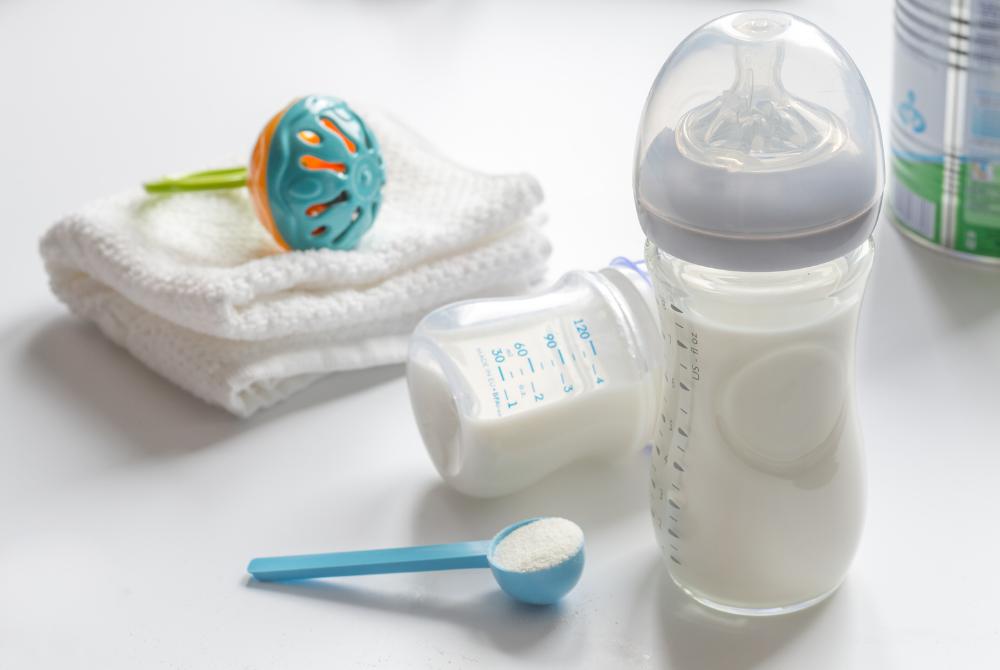Is your baby drinking expired formula?

News of a baby boy named Muhammad Hilman Firdaus who died due to alleged negligence shocked the nation when it was found that he was under the care of trained doctors and nurses in Hospital Raja Perempuan Zainab II (HRPZ II) at the time of his death.
He was only two months old.
Bernama reported that the baby had been provided with baby formula that was nearing its expiry date. The mother of the child, Rosilawati Ismail said that she suspected that the formula was no longer safe to consume, an issue she raised with the doctor on duty.
She was told by the doctor that it was still safe to consume because “it was not yet mouldy”.
In the report, it also stated that the baby was also allegedly given sleeping pills without the parents’ consent as well as being made to fast for five days.

Sinar Daily spoke to Dr Rakhee Yadav, a consultant paediatrician and head of paediatrics at Ara Damansara Medical Centre (ADMC) and Baby and Beyond Child Specialist Clinic Publika to understand more about the dangers of consuming nearly expired or expired baby formula milk.
Rakhee explained that federal regulations require a “use-by” date on the product label of baby formula under the Food and Drug Administration (FDA) inspection.
If the formula is to be consumed by that date, it must contain no less than the quantity of each nutrient described on the label.
The reason why formula must maintain an acceptable quality to pass through an ordinary bottle teat is because if it is stored for too long, the formula can disintegrate and clog the teat.
“There is a chance your child may become sick from drinking spoiled formula milk,” said Rakhee.
She explained that powdered milk can be contaminated by salmonella, Cronobacter and other pathogenic bacteria. The infections caused by Cronobacter bacteria are uncommon but can cause severe illness in infants.
Such infections can cause inflammation in the body, blood poisoning, infect the intestines, and lead to other gastrointestinal problems such as abdominal pain, vomiting, or diarrhoea.
Symptoms can vary from infant to infant, but are not usually harmful in the long run.
“Milk is generally safe to consume after the expiration date for at least a couple of days.
“It helps that parents are typically able to tell when milk is bad, as the smell and appearance will indicate,” she added.
However, she insists that this does not mean that parents should buy expired formula milk by any means.
Asked how parents can ensure proper formula feeding for their baby, Rakhee shares that the first thing they should do, of course, is to check the expiration date or use-by date on the formula container.
Washing your hands is the most important thing before preparing the formula. It is also best to sterilise, sanitise, or wash the bottle that will be used for feeding to remove germs and impurities.
Next comes freshly boiled water and the actual powdered formula.
“Make sure you add the correct number of scoops per ounce of water, and ensure that the temperature of the milk is lukewarm, and not hot,” she explained.
What comes after preparing for feeding time is just as important. Rakhee said that the remaining powdered formula milk should be stored safely in an airtight container.
“Any formula milk that has been left for more than an hour or two post-preparation should immediately be discarded,” she insisted.
The hot topic among new parents is the difference between breastmilk and infant formula.
While it is true that breast milk is the best option, Rakhee mentioned that baby formula is a suitable alternative.
Baby formula is usually derived from cow’s milk (in some cases goat or soy-based), but have been altered in many ways to better imitate human breast milk.
Apart from the nutritional differences between infant formulas and breastmilk, there are two very important additional considerations according to Rakhee.
Firstly, baby formula lacks the distinct bioactive molecules that protect humans against infection and inflammation and contribute to immune maturation, organ development and healthy microbial colonisation.
Besides that, because it is homogeneous in composition, the last sip the baby takes is the same as the first sip.
This is a stark contrast to breast milk, which is a dynamic, bioactive fluid that changes in composition from the colostrum produced at birth to the milk produced in later lactation.
“It is no secret that the risk of infection among formula-fed babies is greater than among those who are breastfed.
“This is partly due to the absence of a mother’s antibodies and also due to the risk of the infant formula being contaminated by the water added to it,” Rakhee noted.
A common misconception is that there is a “safest” or “best” baby formula in the market.
Rakhee assures that all baby formula must pass through extensive quality and safety checks with prior research done on it before it is released in markets for consumption.
“The safest formula for your child is one that suits them individually and does not cause tummy upsets, vomiting, diarrhoea or a rash,” she expounded.











